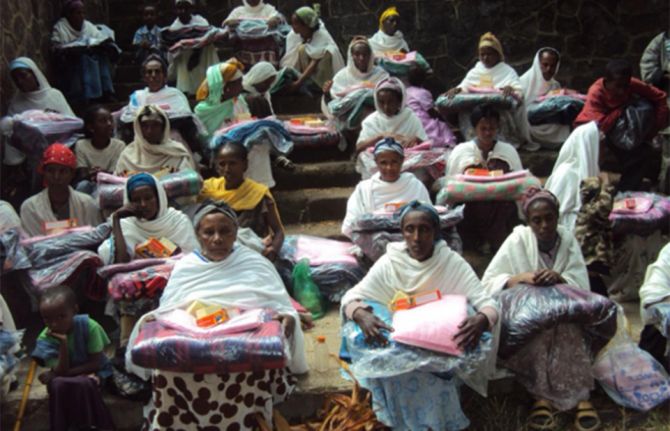
Feature Story
Celebrating fifty years of African unity
24 May 2013
24 May 2013 24 May 2013
Leaders from across Africa and beyond are gathering for a special African Union (AU) summit which marks the 50th anniversary of unity on the continent.
Meeting in the Ethiopian capital, Addis Ababa, from 25-27 May, Heads of State and Government will celebrate achievements spearheaded by the AU and its predecessor the Organisation of African Unity established in 1963.
On Saturday, a Special Commemorative Summit will debate Pan Africanism and the African renaissance and stage an event involving more than 70 world leaders, 15 000 invited guests, a gala dinner hosted by Ethiopian Prime Minister Hailemariam Desalegn and performances from international stars like Salif Keita and Papa Wemba. The following two days are given over to the 21st Assembly of Heads of State and Government where leaders will help chart Africa’s way forward.
Since it was set up some thirteen years ago, the African Union has worked to ensure the further development of the continent and it is committed to meeting future social, health and economic challenges. This is especially relevant now when there is so much emphasis on the post 2015 development agenda and what this will mean for people, countries and regions.
Highlights
There are several meetings and side-events occurring during the Summit. Today, for example, the African Regional Civil Society Health Platform, the Consortium of Christian Relief and Development Association and the Global Network of People Living with HIV are hosting a roundtable discussion.
They are joined by UNAIDS Executive Director Michel Sidibé and Mark Dybul, Executive Director of the Global Fund to Fight AIDS, Tuberculosis and Malaria. High on the agenda will be the collective responsibility of ‘Getting to Zero’ (zero new HIV infections, zero discrimination and zero AIDS-related deaths) and keeping health issues central to the post 2015 development agenda.
There will also be a focus on the implications of the Roadmap on Shared Responsibility and Global Solidarity for AIDS, TB and Malaria Response in Africa adopted by African leaders last year. The Roadmap is a plan aimed at improving health outcomes and access to affordable high quality medicines, as well as diversifying financing mechanisms. Advancements in the AIDS response in Africa have been considerable in recent years, with ever greater numbers of people on HIV treatment and dramatic reductions in the rate of new HIV infections. The roundtable will look at how these successes can be built upon.
With the theme of accountability a motif of the summit the African Union Commission, alongside UNAIDS and the New Partnership for Africa’s Development (NEPAD), will launch Delivering results towards ending AIDS, Tuberculosis and Malaria in Africa, the first thematic accountability report on the AU-G8 partnership. It recommends that both bodies exercise greater leadership, especially in the spheres of sustainable financing, access to medicines and human and gender rights.
The summit also provides an opportunity for AIDS Watch Africa (AWA) to measure partners’ progress in the three key diseases affecting the continent—AIDS, tuberculosis and malaria. AWA was founded by African Heads of State in 2001 as a platform for advocacy and accountability. The outcome of its recent Action Committee meeting will be presented to the 21st session of the AU Assembly for endorsement and follow up action. AWA is expected to request that member states develop a sustainable investment plan for health with year on year increases in domestic funding.
According to the Chairperson of the African Union Commission Dr. Nkosazana Dlamini Zuma, the continent has made great strides in the last 50 years and needs now to look to the future. She said, “As we celebrate the 50th anniversary of the OAU and AU, we are inspired by their example, and pledge to work together in solidarity for an integrated, people-centred and prosperous Africa, at peace with itself.”



